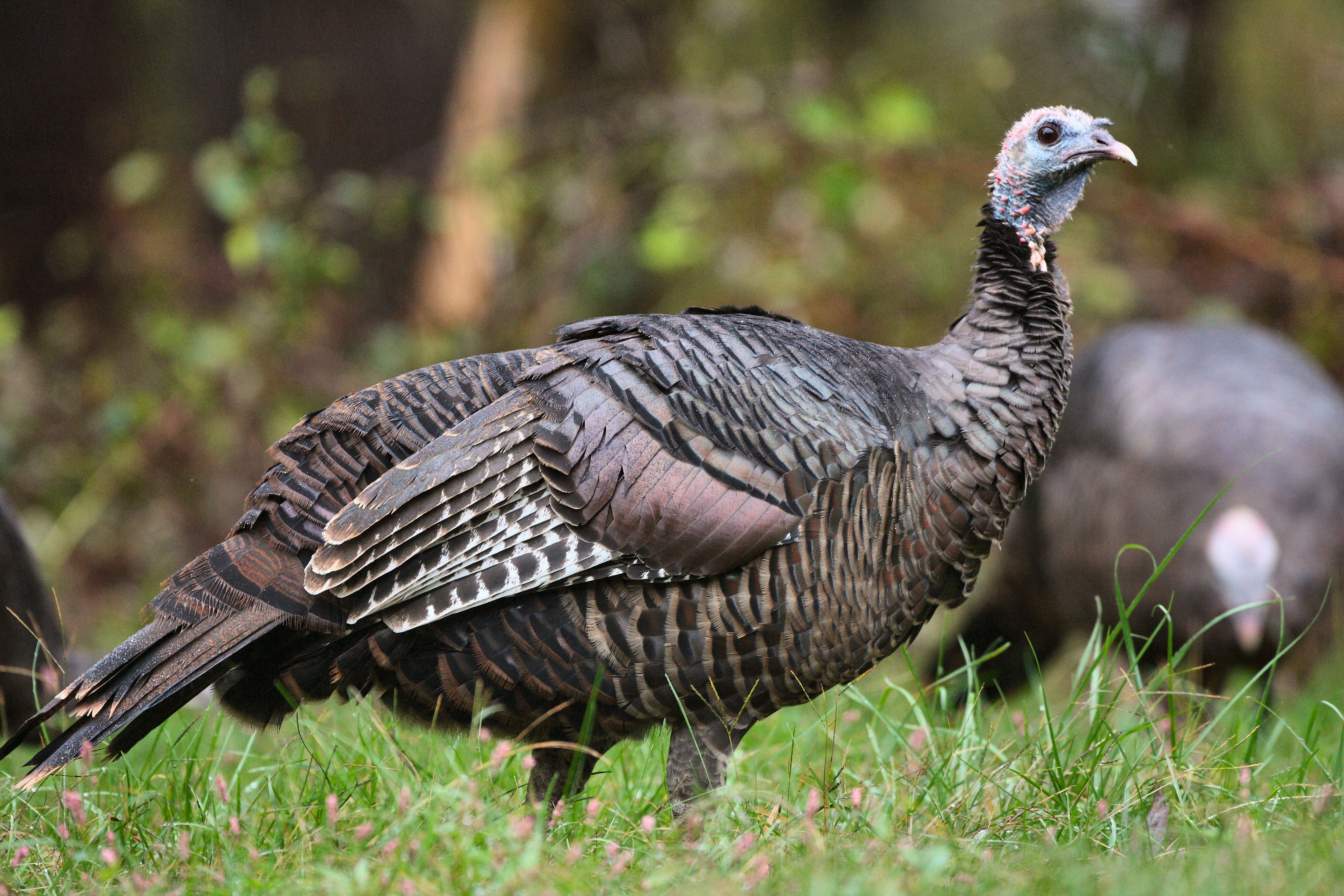Wild turkey
The wild turkey is native to North America and can be found over most of the eastern two-thirds of the U.S. with small pockets along the west coast and in Mexico. Wild turkeys prefer relatively open hardwood and mixed evergreen hardwood forests with scattered openings. Some turkeys can be found in woodlots relatively close to human population centers. Despite their large size, wild turkeys (unlike their domestic relatives) are agile fliers and roost in trees. Wild turkeys are social birds and live in flocks. Wild turkeys are omnivorous and typically forage on the ground for acorns, nuts, seeds, berries, fruits, grasses, roots, insects, and small amphibians and reptiles. Wild turkeys often feed in cow pastures and favor croplands after harvest to scavenge seed on the ground. Turkeys can be attracted to bird feeders. Occasionally, turkeys may behave aggressively towards humans, especially in areas where natural woodland habitats are scarce or where people have been feeding them. They have been known to chase humans; however, attacks can usually be deterred and minor injuries can be avoided by giving turkeys a respectful amount of space.
Legal, Regulated Hunting in Massachusetts
Legal, Regulated Hunting in Massachusetts
The use of legal, regulated, hunting by licensed hunters can be useful for reducing local wildlife populations and can help reduce nuisance problems in Massachusetts. You can allow hunters on to your property, provide a place for them to park to access nearby forest, and/or give them permission to hunt within 500 feet of your residence. Please also keep in mind that each town may have additional by-laws that restrict hunting and the discharge of firearms.
Solutions for wild turkey problems
Laws and regulations to be aware of
Regulations for Massachusetts
|
||||
While we attempt to provide guidance about state and federal regulations pertaining to specific species and control techniques, we do not provide information about local jurisdictions (city, town, county, etc.) where regulations may be more restrictive, especially as it applies to discharge of firearms, transport of animals or use of trapping equipment. Contact your local city or county government to inquire further. No guarantee is made that information (or lack of information) associated with a species or control technique is completely accurate or current. You should become familiar with federal, state and local laws before beginning any wildlife control activities. |




